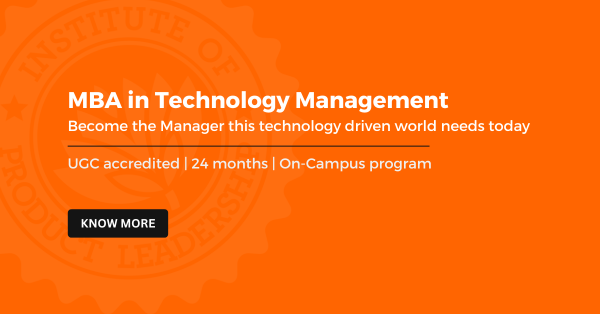Let’s learn about the 8 major trends that are expected to impact the future of MBA in Technology Management:
1. Emphasis on AI, Machine Learning, and Data Analytics
Artificial Intelligence (AI) and machine learning are no longer just buzzwords—they are transforming industries. In 2025, AI will be a driving force in decision-making, customer experience, product development, and operations. MBA programs in Technology Management will place increased emphasis on understanding and implementing AI-driven solutions, equipping students with the knowledge to leverage these technologies in business contexts.
Students will gain hands-on experience in analyzing big data, using machine learning to predict trends, and creating AI-powered solutions to solve business problems. Courses will include subjects such as data science, AI in business, and predictive analytics.
For instance, companies like Amazon use AI to optimize supply chain management, while Netflix employs machine learning to provide personalized recommendations. Graduates of MBA programs will not only be able to understand these technologies but also manage projects that implement AI-driven strategies across various business functions.
2. Integration of Cloud Technologies
Cloud computing has already revolutionized the way businesses operate, offering flexibility, scalability, and cost efficiency. By 2025, cloud technology will be central to business operations in nearly every industry, including finance, healthcare, and retail. An MBA in Technology Management will incorporate cloud management courses to ensure students understand how to design, implement, and scale cloud-based solutions.
The shift to cloud services requires professionals who can navigate hybrid cloud environments, manage security risks, and ensure smooth integration with existing systems. With major companies like Microsoft, Google, and Amazon continuing to push the boundaries of cloud services, graduates of these programs will be equipped to lead organizations through digital transformations, manage cloud migrations, and optimize cloud infrastructure.
3. Cross-Disciplinary Learning for Business and Technology Leadership
Future MBA programs will emphasize a cross-disciplinary approach, blending traditional business strategies with technical know-how. This approach is designed to ensure that graduates can lead in environments where technology and business strategy are closely integrated. Understanding both the technical and business sides of operations will allow graduates to bridge the gap between IT and non-technical departments, ensuring that technology solutions align with organizational goals.
Incorporating courses on project management, business strategy, and technology management will ensure that students graduate with the skills needed to drive both innovation and growth. The cross-disciplinary nature of these programs will help students manage teams that include data scientists, software engineers, and business development professionals, facilitating collaboration and improving project outcomes.
4. Focus on Digital Transformation Leadership
As digital transformation continues to be a priority for businesses, MBA programs will increasingly focus on equipping students with the skills necessary to manage large-scale digital change initiatives. Digital transformation goes beyond just adopting new technology—it involves rethinking business models, changing organizational cultures, and leveraging digital tools to create competitive advantages.
MBA programs will teach students how to manage digital change, assess the impact of emerging technologies, and integrate them into business processes. For example, students will learn to implement technologies such as automation, blockchain, and augmented reality (AR) into existing business models, improving operational efficiency and customer engagement. This will make graduates more valuable to companies that are in the midst of digital transformation.
5. Increased Focus on Cybersecurity and Ethical Technology Management
With the rise of technology adoption comes an increased risk of cybersecurity threats. As companies store more data in the cloud, rely on AI for decision-making, and use data analytics for insights, protecting this information becomes a top priority. MBA programs will place a strong emphasis on cybersecurity, data privacy, and ethical considerations in the development and deployment of technology.
Students will learn how to manage technology projects with a focus on safeguarding organizational data and ensuring that ethical standards are upheld in the development of new technologies. They will also gain expertise in navigating the regulatory environment, including data protection laws like GDPR, which will be increasingly important as businesses expand globally.
6. Remote Work and Global Collaboration
The global shift towards remote work will continue to grow in 2025. With technology enabling teams to work from anywhere, MBA programs will increasingly teach students how to manage distributed teams, oversee virtual collaborations, and foster effective communication across different time zones and cultures.
Global collaboration tools, like Zoom, Microsoft Teams, and Slack, will be essential for students to master in order to lead international teams efficiently. In addition, MBA programs will focus on building leadership skills that are crucial for managing remote teams, such as communication, project management, and virtual team dynamics. These skills will be critical for graduates working in multinational corporations or startups that have geographically dispersed teams.
7. Sustainability and Green Technologies
In 2025, sustainability will become a central focus for businesses across industries, and technology management will play a key role in driving this shift. MBA programs will address how companies can use technology to reduce their carbon footprint, implement sustainable practices, and align with global sustainability goals.
Students will explore green technologies like renewable energy solutions, energy-efficient software, and sustainable product development. They will learn how to lead companies in adopting eco-friendly practices through the use of innovative technologies, thus creating both business value and environmental benefits.
8. Expansion of Online and Hybrid Learning Formats
As the demand for flexibility in education continues to rise, MBA programs in Technology Management will expand their online and hybrid learning options. These formats allow students to gain advanced degrees while continuing to work or manage other commitments. Online and hybrid models will also facilitate greater access to students from all over the world, contributing to a more diverse and inclusive learning environment.
Future programs will offer immersive, interactive online courses in a flexible format, allowing students to learn at their own pace while engaging with instructors and peers through virtual classrooms, webinars, and collaborative projects.
The future of an MBA in Technology Management is bright, with rapidly evolving trends shaping the way students are prepared to lead in a technology-driven world. The combination of technical expertise and business leadership skills will be critical in navigating the challenges and opportunities of tomorrow’s digital economy. By 2025, these MBA programs will offer a comprehensive education that addresses emerging technologies, digital transformation, cybersecurity, and global leadership—equipping graduates to lead organizations through the next wave of innovation. If you’re looking to future-proof your career and lead at the intersection of business and technology, an MBA in Technology Management is an investment in your future.
If you’re ready to take the next step in your career, explore the opportunities available through the MBA in Technology Management program at Institute of Product Leadership and equip yourself with the skills needed to lead.






